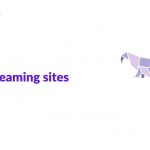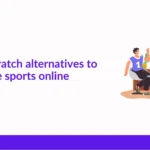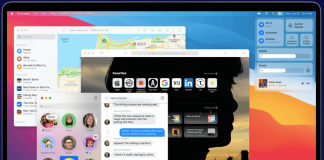The number of hours spent online is increasing every year. People live their lives on Facebook, politicians promote themselves on Twitter, and we’ve all become addicted to streaming services.
Even public TV companies have decided to upload their programs to the internet and jump on the digital bandwagon. However, most streaming providers and T -stations use geo-blocking to restrict their content in different areas.
Stay with us if you want to find out how to dodge these limitations in the shortest time possible.
Contents
The reasons behind geo-blocking
Every streaming service feels the pulse of the market and adapts its offers accordingly. Let’s say that Netflix or Hulu experts realize that piracy isn’t properly sanctioned in a certain area in the world. They might decide to apply geo-blocking to that region because they want to prevent their content from being recorded and shared illegally.
What’s more, every streaming service needs to sign special contracts with the studios whose materials they stream. If a country or a region wasn’t included in the initial agreement, they’re not allowed to broadcast that content there.
Of course, there are certain financial reasons behind geo-blocking. In a nutshell, this feature allows streaming platforms to charge their services differently in different regions. In the case of state-owned TV stations, like the BBC, their programs are financed by UK citizens. As a result, they don’t want to allow people outside the UK to watch that content for free.
The Benefits of Using a VPN
The internet is still the paradigm of freedom incomparable to any other platform in history. Therefore, internet users aren’t used to any kind of restrictions, especially those who are willing to pay for the services they like.
That’s why many people worldwide don’t hesitate to remove the obstacle called geo-blocking. The most practical way to do that is to use a virtual private network (VPN).
The usual way to access the web is through the ISP-provided internet connection. In that case, your IP address is visible to other parties on the web. Since it reveals your location, that’s how various platforms know where users come from. So, a visible IP address is the basis for geo-blocking.
But if you use a VPN, you mask your IP address, and no one can tell where you come from. What’s more, you can choose your location in the VPN settings. That’s how people from different parts of the world manage to dodge geo-blocking. They connect to servers in the US so they can access the content available to US residents.
Can You Trust a Free Service?
Using a virtual private network means that you access the internet through an alternative route. Metaphorically speaking, you don’t use the most popular highway (the path ensured by your internet provider), but you fork off to an alternative route.
VPN users connect to servers located in the same country as the website or streaming service that they want to access. Some VPN providers offer free service. However, in such a case, people might be exposed to many ads, and their private information can end up being collected.
Others have a price tag on them, which usually doesn’t go beyond $5 a month. It’s up to users to decide whether the monthly fees for a streaming service and a VPN will pay off through the content they use.
Another way to elude geo-blocking is to use a DNS system. This acronym stands for a domain name system. The principle is similar to a VPN. Your internet connection is redirected to a server located in the country where the desired website is registered. As a result, the device’s DNS changes and a user gets access to the restricted content. However, the Smart DNS doesn’t change the device’s IP, and it doesn’t provide encryption.
The legal matters
Now that you’ve read all these tips, one question is probably bothering you: are VPNs legal in the first place?
There’s no unison answer to that question.
Some legal experts claim that every attempt to pass by a regulation imposed by a seller is copyright infringement. Others say that this principle doesn’t apply to geo-blocking because users don’t steal goods. As a matter of fact, they even need to invest more assets to access the desired content.
On the one hand, they need to pay the fee to the streaming platform. On the other, there are VPN or DNS expenses.
Unless you live in China, Russia, or Iran, where VPNs are forbidden, you’re not breaking the law directly. Still, if the website whose services you’re using discovers that you’re doing it via a VPN, they can find a way to block you.
To cut a long story short, using a VPN doesn’t make you a criminal, but it might cause some inconveniences.
Conclusion
The internet has been an area of unlimited freedom for almost three decades. Geo-blocking changes the face of the global network. Those novelties are mostly frowned upon by the global audience.
However, people are coming up with new ways of avoiding limitations. Those alternative paths might be a bit inconvenient from a UX point of view. Still, they allow millions of people worldwide to watch the content they like. So, we hope that our tips will be useful for people who are yet to join this global tribe of geo-blocking dodgers.














